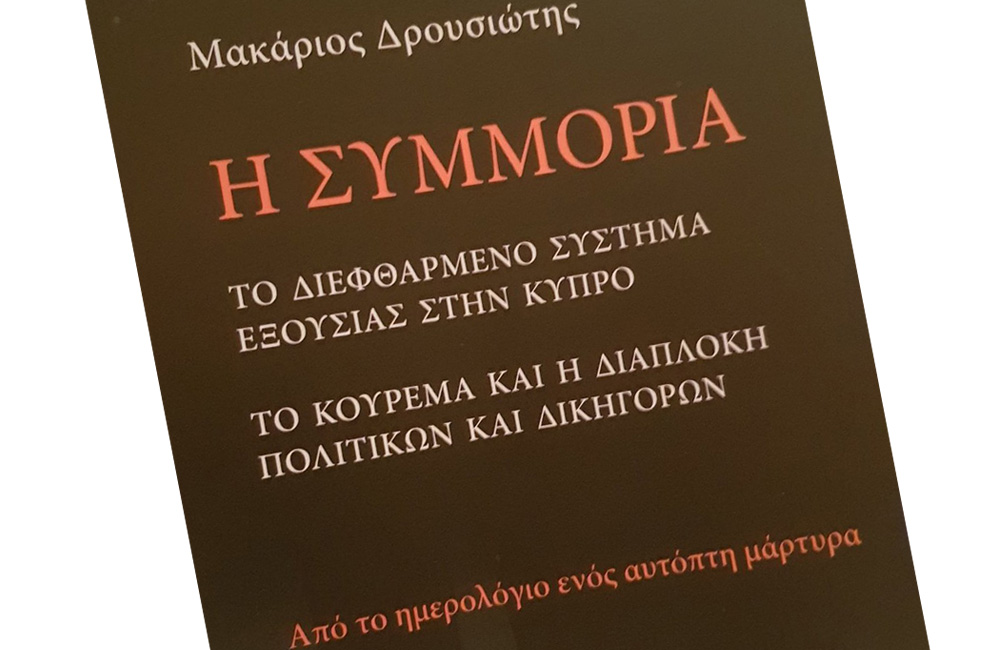book review -book about corruption in cyprus government

This book is about corruption in high tier politics of Cyprus today but if you can read Greek (I hope there is an English translation of it soon?) you will notice the way corruption happens can possibly happen in other countries too. What I mean is, that, when a politician wants to be elected and gets support by oligarchs from within and outside his country and then he wants to govern eventually in corrupted ways.
I am by no means expert in literature but I enjoyed reading the book despite having no background in political science or even literature judgement. The journalist Mr Drousiotis has written the book in a way that makes the dialogues alive and dramatic and he has done so because in the society of Cyprus people are quite verbal and flamboyant one can say when they communicate. I say this as a Cypriot and not as a sociologist. Mr Drousiotis writes about corruption but he covers it as a journalist foremost therefore the book is not riddled with academese language.
Instead its a lively witness account of ‘’what happened, when, with whom, who said that’’ kind of book. If you want to believe his witness or not, its up to you, the read. I as a citizen of Cyprus who read and felt already many times over how police of Cyprus both in local press and on personal level regarding my own experiences as citizen living in Cyprus is corrupted, I do believe in Mr Makarios Drousiotis account in this book.
Many in Cyprus TV of the persons he mentions in this book already expressed openly their denouncement of the book and even went as far as to deny openly that what Mr Drousiotis as journalist says on his book happened or took place.
For example behaviours and actions that affected the 2013 economic crisis handling, mentioned in the book here, the ‘’protagonists’’ Mr Drousiotis names, have already gone to TV to denounce the book and the truthfulness of the author/journalist.
In the end we all know, those of us who come from Cyprus (and Greece) that corruption is a big problem in our governments yet somehow all efforts to fight it only cause a veil of ‘’we are fighting it’’ without actually giving tangible results. We still are afraid that the government is corrupted. We still approach gov services in Greece and Cyprus with fear that we will be asked for ‘’fakelaki’’ or ‘’gimme this to giv eyou that’’’ mentality. We still do not believe that our government, regardless of which political party is in power, function of fully democratical and citizen-serving inclusive governments.
Therefore, even if Mr Drousiotis book dramatizes events in a way that shows corruption is a huge problem and deeply embedded in the mentality of many laywers, politicians, powerful men and women in the island-country and EU member Cyprus, it doesnt necessarily mean that because its so dramatic, its a lie.
Again, Mr Drousiotis is primarilly a journalist. As a journalist he did a good job being a first witness of important historical events. His book reminds me of Xenopho’s account Anabasis because it uses simple language yet records important events in details that many find minute yet the details give this book some of its art quality aside its (questionable by many) journaistic and historic qualities.
Anna Zinonos H Trelh Blog
21/11/2021